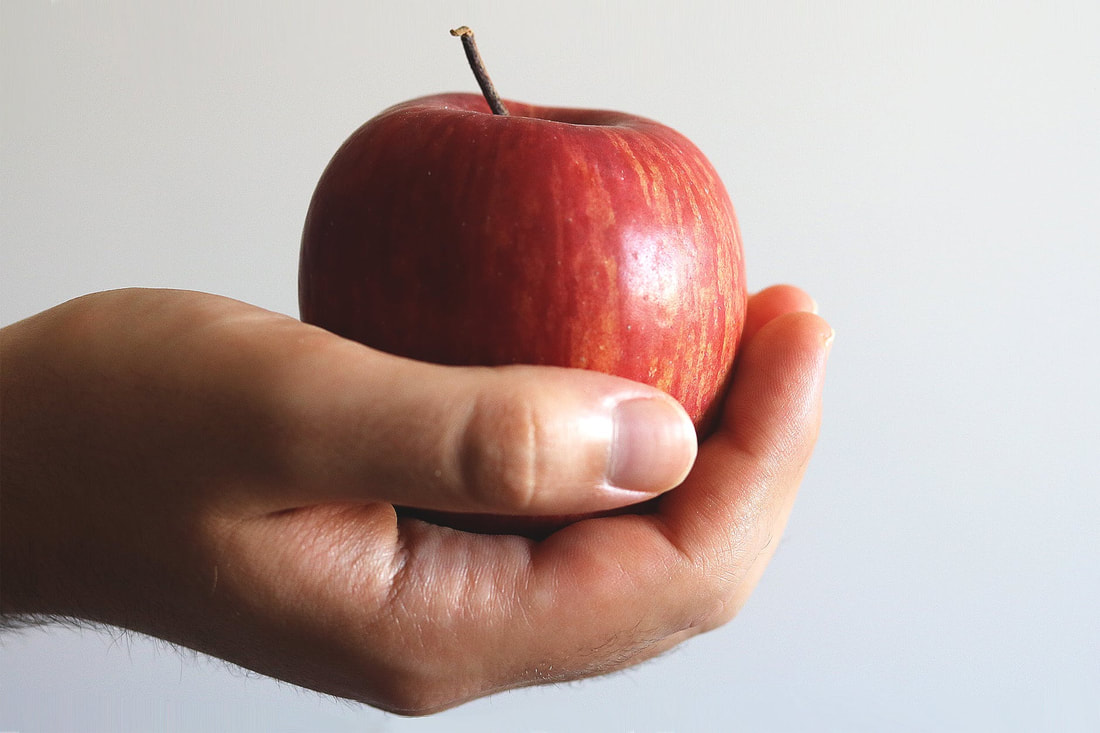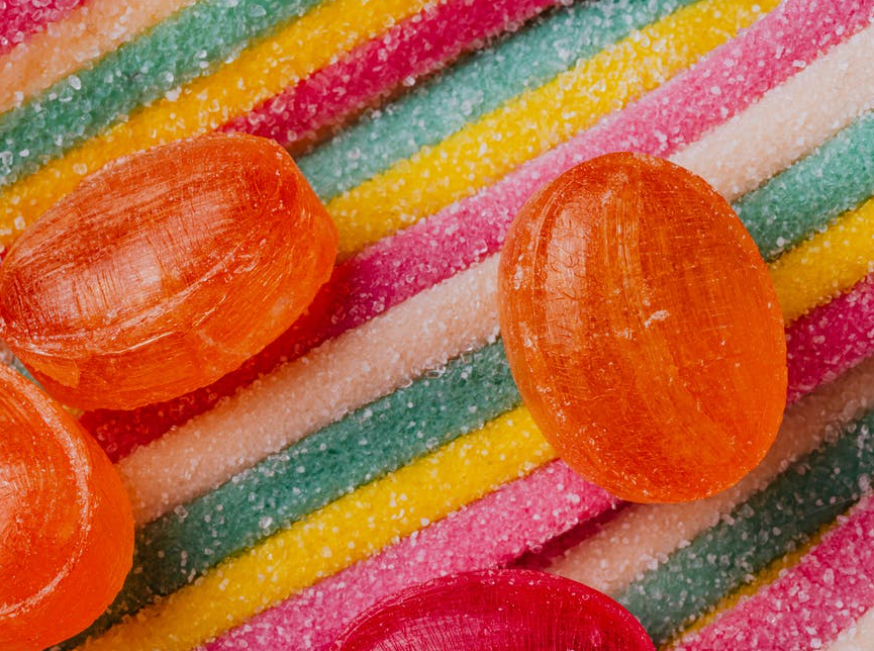|
You must have heard about the famous adage that “an apple a day keeps a doctor away.” But you may be wondering whether the same reasoning applies to the dentists too. Well, this can be true to some extent, especially for the kids’ preventive dentistry. Not that apples have any healing capability or something, but apples can be an excellent substitute for desserts, cakes, or cookies. Apples have a naturally sweet and hydrating taste that can satisfy the craving for those sugary foods without inviting the bacteria that cause tooth decay.
Avoid the Sugary Delights
A proper dietary habit is crucial for maintaining a healthy smile. The preventive dentistry in Bellevue says that sweet foods like candies, chewing gums, sugary snacks aggravate tooth decay in children, as they have a natural inclination to these kinds of foods and have a greater risk for developing dental cavities. These foods stay stuck on the teeth for a long time, which turns into an acidic substance that erodes the tooth enamel creating dental cavities. Moreover, these sweet snacks are loaded with a lot of calories without any nutritional value.
Apples and a Healthy Mouth
It is needless to say that fruits and other natural sources of food are always a better option than any packaged or artificially processed food. The kids’ dentistry experts recommend that whenever your child craves any sweet snack, instead of buying them some candies or chewy gums, hand them an apple. It will not only satisfy the sweet craving, but apples can also boost some energy in your kid. It also helps in freshening the breath.
You would be surprised to know that the crunchy and fresh apples are also capable of scrubbing the bacteria and even the plaques off the surface of your teeth, reducing the possibilities of bad breath. Thus, this fruit can also be helpful as a natural cleanser and mouth freshener. A well-hydrated mouth is another sign of a healthy mouth. Pediatric specialists explain that eating an apple can be a very healthy habit for always maintaining a healthy hydration level in your mouth. When your kids have an apple, it will stimulate the salivary glands in his/her mouth and secrete more saliva. It can wash away the sugar and acids to stop the process of tooth decay or gum diseases. Prevention is Better than Cure
If you want to avoid hazardous and critical dental treatments, it is better that you follow a proper oral health-care routine. Incorporating apples and vegetables in your child’s dietary plan can be beneficial for preventive pediatric dentistry. Having a healthy diet plan and regular dental checkups would be enough for maintaining better oral hygiene for a lifetime for your child.
Every Mint Kids Patient is aware of the importance of maintaining a proper diet plan. Parents of school-going children should consider the natural processes of maintaining better oral health over artificial treatments. Give a visit to their clinic to know more about a healthier smile for your kid.
Your everyday eating habit and oral health are inseparably associated with each other. According to surveys, over a million people in America suffer from eating disorders either due to their lifestyle choices or some psychological issues. These disorders can give way to other life-threatening psychological or physical diseases.
Our mouth is one of the first places in our body that gets affected by these problems. Kids and teenagers are more vulnerable to these eating disorders. Here comes the vital role of preventive pediatric dentistry to protect your child from any such illnesses. What Are the Common Eating Disorders?
What Are the Common Oral Symptoms to Identify Eating Disorder?
Eating disorders like anorexia and bulimia can cause problems in our mouth for various reasons. Firstly, excessive eating habits or limited food intake may lead to the deficiency of vital vitamins and other essential nutrients in our body. On the other hand, the vomiting tendency induces stomach acids into our mouth which has the potential to damage our teeth and the oral tissues. Some symptoms of the oral damages caused by eating disorders include:
How Can Pediatric Specialists Be Helpful for Oral Disorder?
Child dental specialists play a pivotal role in kids’ preventive dentistry. Your dental specialist can suggest:
It is not just the children, but a large portion of the adult population also gets anxious and nervous in the name of dental problems and their treatments. Sedation dentistry appears most helpful in such situations to calm the mind before beginning the treatment process. But as a parent, you might be worrying whether it would be safe enough to put your child through such treatment procedures.
It is very natural for you as there is very little awareness about the sedation treatment processes. Thus, let us have a brief discussion on the sedation pediatric dentistry treatment processes and if they are safe for your little one. What is Sedation Dentistry?
It is a process that is performed before the dental treatments under the supervision of trained dentists. Some mild medications or sedatives are used to calm the patients with special needs, extreme fear of dental treatments, restless or naughty children so that the long and multiple treatment procedures can be done with ease. However, there are several rules and restrictions for giving such sedatives to patients with different conditions for ensuring the patients’ safety.
Types of Sedation The sedatives do not relieve the patient from the pain. It helps in relaxing the nerves of the patient for the ease of the treatment. This treatment does not aim to make the patient fall to deep sleep. At Mint Kids Dentistry, the doctors use some of the most common types of sedation on the children following all the safety measures. 1) Oral Sedation Oral sedation is given in the form of oral pills. The sedation pediatric dentist will ask your child to ingest the medication before starting the treatment procedure to help the child to relax. It will make him feel drowsy, but it will not put him to sleep. 2) Intravenous Sedation IV Sedation is given to the child through injection into their vein, generally at the back of the hand. But first, make sure that the child is not afraid of needles. However, you will need to prepare the child from home for this procedure. This medication helps the child remain less conscious about the dental works done by the doctor. 3) Nitrous Oxide This sedative is given to the patient in form of a gas. You may have heard about this gas as the laughing gas. Your child will have to inhale the gas through a mask. There will be a combination of oxygen and nitrous oxide to help in soothing the child’s nerves and keeping him calm during the dental treatment. It reduces the anxiety level of the child. And after the treatment is complete, pure oxygen will be passed through the mask to eliminate the traces of nitrous oxide from the child’s body. So, next time do not scare away from dental appointments. Be assured of the safety of sedation pediatric dentistry. The Mint Kids patients can always share their experience around the same. So, never neglect your oral health from now on.
Preventive pediatric dentistry has great importance in the lives of the parents, especially for newborns. Coming out of the first tooth is one of those milestones of the initial years of your baby’s life. But the teething experience might not be as sweet a memory as the other ones. It can cause a lot of tears, pain, and sleepless nights for the baby and you. The initial years of parenthood seem like a roller-coaster ride of feeling confused, stressed, amused, joyful, and so much more at the same time.
The most common question that prevails among first-time parents is that when is their baby going to have its first teeth. In reality, there is no definite answer to this question. This experience can happen anytime between four to eight months of the baby’s age, of course, with some exceptions. When Does a Baby Start Getting Its First Tooth?
In most cases, the first tooth starts peeking out around the age of 6 months. However, you cannot consider something ‘common’ to be the ‘ideal’ or the ‘best’. Each baby is different, and the signs of growing up can come about at various times for everyone. It may occur as early as three months or as late as 14 months. There is nothing to worry about your baby’s health in such cases.
According to the pediatric specialists, your kid will have all 20 milk (temporary) teeth of the baby by the age of two to three years. There will be a few telltale signs that will indicate that your baby is about to have the teething experience, such as drooling, crankiness, slight temperature, chewing of different objects, etc. How to Care for the Baby’s First Teeth
Kids’ preventive dentistry suggests that proper gum-care is crucial for the oral health of your infant even before the emergence of the first tooth. There are some tips that you should follow and some you should avoid. Here are some facts about the oral care of your baby:
Maintaining regular oral hygiene from childhood is a must for a healthy smile throughout the lifetime. Every Mint Kids patient would recommend visiting their clinic at least once within the first six months of the appearance of the first tooth of the baby.
The food we eat has a huge impact on our dental health. Right after the food enters the mouth it is exposed to the various acids which often lead to tooth decay. These days kids who prefer eating junk food just end up speeding up the entire process.
Moreover, the overall duration till which the food remains in the mouth is a huge determining factor. In fact, cavities are one of the chronic diseases found in kids aged between six to eighteen years. Getting proper oral care through Kids Dentist is the best way around. Neither less to say, for maintaining good oral health, eating a balanced diet is essential. How to Prevent Cavity Formation?
Kids Dental Clinic in Bellevue would often recommend, the best you to fight against cavities is to stop them from forming in the first place. Here is a step-by-step guide to proper dental care.
Foods to Prevent Cavity Formation
1) Fiber-Rich Foods and Veggies
A child should have an average of 10 to 20 grams of fiber every day and an adult should have at least 30 to 32 grams of fiber per day. Some of the fiber-rich food includes:
The calcium in different dairy products helps to restore the minerals. Besides, they help in building up enamel. For children who are allergic to milk or has lactose intolerance then you can get calcium-fortified juices, soy milk for your child. 3) Whole Grains Whole grains are rich in Vitamin B and iron which helps in keeping your gums healthy. Moreover, they are rich in fiber. You can plan a diet for your child keeping all these things in mind. 4) Green and Black Teas This prevents the formation of plaque. The polyphenols found in green and black teas kill the held-up bacteria. It prevents acids that attack your tooth enamel. Food You Need to Avoid
Pediatric Dentistry WA is your one-stop solution for a comprehensive dental care solution. Make sure to visit your dentist at least twice a year and follow the article by heart. Once you get everything right, you can find your teeth healthier in no time. |
AuthorMint Kids Dentistry Archives
July 2021
Categories |
Location |
|
Sitemap
|
Forms
|











 RSS Feed
RSS Feed